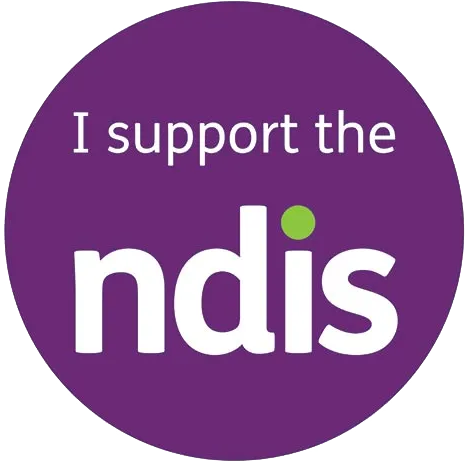Understanding disability home care services by NDIS can be complicated. Whether you are new to or seeking to optimise the existing plan on NDIS, this article will guide you to understand essential details about disability home care services and how to access and manage these services effectively.
What are Disability Home Care Services?
Disability Home care services are assistance and support for disabled individuals at their own home. These services offer a wide range of support, including:
- Personal Care: Helps participants to maintain personal hygiene, offering support for daily activities like bathing, dressing, toileting, grooming, etc.
- Domestic Assistance: Help with household chores like cleaning, cooking, and laundry. These services ensure a safe and clean living environment.
- Nursing Care: Offers Specialised medical care like medication, wound care and other medical services by registered nurses
- Community Access: Support participants to participate in communities and events for helping them improve their social life and social skills
- Respite Care: Provide temporary relief for caretakers of the participants by offering short term disability support services
These services are essential for enabling individuals with disabilities to live comfortably and independently while receiving the support they need.
How the NDIS Supports Disability Home Care Services
The NDIS plays an important role in providing financial assistance and coordination of disability home care. The following are the ways that the NDIS helps participants:
Funding
One of the primary ways that the NDIS assists with disability home care is through the funding. The eligible participants receive funds, which can be used to help pay the cost of different services for disability home care. These funds offer flexibility, which allows people to pick the most suitable services for their requirements.
- Core Supports: These are services that assist in everyday tasks such as home care and personal assistance.
- Capacity Building Supports: These programmes concentrate on building capacities and skills by providing training and support for participation in the community.
- Capital Supports: These are used for purchasing or modifying equipment and home modifications to improve accessibility.
Personalised Plans
The NDIS provides personalised plans for each individual according to their specific needs and care. These plans are made by discussing participants and their support network together and ensuring the services provided align with their needs.
- Planning Meetings: During these meetings, participants discuss their needs, goals, and the types of support required.
- Goal Setting: Individuals create goals for themselves, and the NDIS plan is made to support them in achieving these objectives.
Access to Providers
The NDIS connects participants to registered NDIS providers who provide the necessary care and assistance. Participants can choose the providers from the list of registered providers, ensuring they would receive quality services and care that meet their standards.
- Provider Listings: Ndis website has a list of registered NDIS providers from which participants can find and evaluate their services to choose the right provider
Service Agreements: Participants enter into agreements with service providers that define the conditions of service, including charges and obligations.
Benefits of Using NDIS for Disability Home Care
Using NDIS funding for disability home care services offers several key benefits:
Personalised Care
NDIS funding permits personalised methods of care, which ensures that services are specifically designed to meet the unique requirements of each. This personalised care plan is designed to address the unique requirements and preferences of the participant.
- Tailored Services: Participants can select services and providers that best align with their needs and goals.
- Flexible Support: NDIS funding enables beneficiaries to adapt their support according to their changing needs.
Flexibility
The NDIS offers flexibility in the way services are arranged and paid for. The participants are able to select their preferred service provider and to adjust their assistance as required.
- Choice of Providers: Participants have the option from a range of service providers to ensure they get the highest quality service.
- Service Adaptation: Services can be adapted to meet evolving requirements, like increased needs for care or different preferences for support.
Independence
Receiving care at home can help people find peace and a sense of autonomy. The home based caring and supporting approach can help the disabled individuals to live their lives independently at their own home.
- Comfortable Environment: Disability support at home can be comforting for participants
- Enhanced Quality of Life: Proper support and comfortable environment of being at home can enhance quality of life for participants
How to Access and Manage NDIS Funding for Disability Home Care Services
Accessing and coordinating NDIS funding available for disability home care services requires a number of steps. This guide will assist you in the procedure:
Determine Eligibility
Make sure you meet the requirements before submitting an application for NDIS support. People who have a major, long-term handicap that interferes with their everyday life are qualified.
- Eligibility Criteria: The NDIS website provides detailed information on eligibility requirements, including age, residency, and disability criteria.
Apply for NDIS
Send an application to the NDIS with all the necessary documents and information about your disability and the care you require. The application process includes:
- Initial Contact: Contact the NDIS to inform them of your interest and start the process of application.
- Documentation: Provide medical records, disability assessments, and any other relevant information.
Create a Plan
Once approved, work with an NDIS planner to create a personalised plan. This plan outlines your care needs, goals, and the types of support you will receive.
- Planning Meetings: Participate in meetings to discuss your needs, goals, and the support required.
- Plan Development: Collaborate with the planner to develop a plan that aligns with your objectives and preferences.
Choose Providers
Select registered service providers who can deliver the care and support outlined in your NDIS plan. Consider factors such as provider reputation, services offered, and costs.
- Provider Research: Use the NDIS provider directory to research and compare potential providers.
- Service Agreements: Enter into agreements with chosen providers to formalise the terms of service.
Manage Your Plan
Regularly review your NDIS plans to ensure that services meet your needs. If any changes are necessary, make adjustments with your plan for better disability support and care.
- Plan Reviews: Schedule periodic reviews with your NDIS planner to assess the effectiveness of your plan.
- Adjustments: Update your plan to address any changes in your needs or goals.
Common Challenges and How to Overcome Them
While the NDIS provides valuable support, navigating the system can present challenges. Here are some common issues and tips for overcoming them:
Understanding the System
Navigating NDIS can be complex and understanding the system can be a challenge. Get help from advocates, support coordinators or your nearby NDIS office if you require assistance with navigating the NDIS.
- Support Coordinators: These professionals can assist with understanding and managing your NDIS plan.
- Advocacy Services: Organisations that provide advocacy can help you navigate the NDIS and address any issues.
Finding Providers
The process of finding a good service provider can take some time and effort. Do your research thoroughly and get suggestions from those who have utilised similar services.
- Provider Recommendations: Request recommendations from family members, friends and support groups.
- Provider Reviews: Check the reviews as well as ratings in order to determine the level of service quality.
Managing Funding
Managing funding and ensuring it is effectively used is complicated for some. This can be managed by regularly reviewing funds and ensuring the efficient utilisation of resources by keeping in touch with providers.
- Financial Tracking: Track your spending and funds by using budgeting tools and apps
- Provider Communication: Maintain clear communication with providers to ensure services are delivered as planned
Conclusion
Understanding disability home care services and how NDIS funds them, is vital for maximising your benefits. A better awareness about these services, funding, and NDIS personalised plans can help you access support for all your requirements and maximise benefits. Remember, regularly check your NDIS plan to make adjustments according to your changing preferences and support requirements.
For more information and personalised advice, get in touch with us at Ayurclinic Care Health today and live your life independently. With us, you will be able to navigate the NDIS better and get access to top-quality home care services to improve your life quality.










